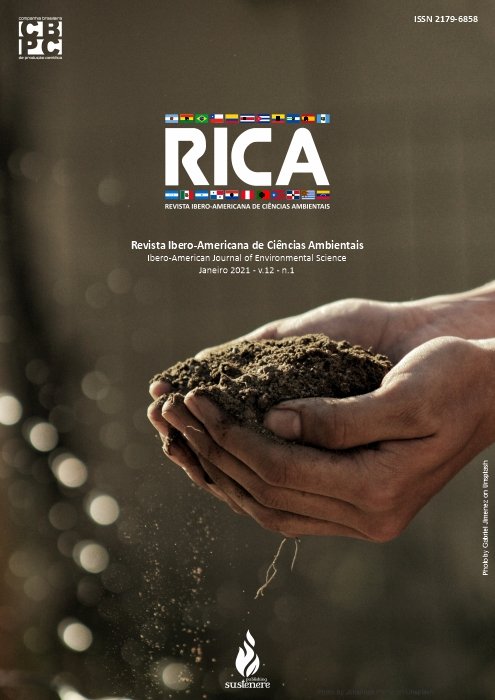Dimensioning the co2 emissions of the sugar-energetic sector in the State of Mato Grosso do Sul, with the application of the input-output matrix of 2015
DOI:
https://doi.org/10.6008/CBPC2179-6858.2021.001.0040Keywords:
Input-Output Matrix, Agribusiness, Regional developmentAbstract
Applying the input-output matrix, the objective of this work was to measure CO2 emissions by the sugar-energetic sector in Mato Grosso do Sul, disturbed by the economic shock, trying to demonstrate the impacts on CO2 emissions and the link between the sector to others, sectorial interdependence through indexes that synthesize the back and forth links of productive activities, identifying the key sectors of the regional economy. Furthermore, it was verified how multipliers contributed to the decision-making process of public policies for regional development. It was found that the sugar-energetic sector in the State of MS in 2015 accounts for 21.99% of CO2 emissions out of the total emissions from agribusiness. Upon the analysis of the sector's aggregates, aggregate II (agriculture) has 41.54% of CO2 emissions and aggregate IV (trade and services) has 31.16% of CO2 emissions. With the economic shocks in the sugar-energetic economy, and the direct, indirect and induced effects in their entirety, the sugar production stands out with a total of 53.01 t., fallowed by ethanol production with 19.37 t., and lastly sugar cane with 11.71 t., It is noteworthy, therefore, that the effects occur with greater intensity in the production of sugar. In other activities, ISPG stands out with 62.78 t. and in the sequence Other Manufacturing Industries with 39.96 t. In the linkages, it was observed that only sugar production has a backward link while intersectoral links are made with input suppliers. As for the forward link between the sectors of Commerce, Transport and Other Services, there are two key sectors: Other Agriculture and ISPG. It is concluded that the sugar-energetic sector can be considered in an ecologically correct context, although it depends on burning sugarcane bagasse, releasing CO2 emissions. However, it is captured by plants during their growth, in the process of photosynthesis, generating global impact on helping to control the 'greenhouse effect'.
Downloads
Downloads
Published
Issue
Section
License
The CBPC - Companhia Brasileira de Produção Científica (Brazil CNPJ: 11.221.422/0001-03) the material rights of the published works. The rights relate to the publication of the work anywhere in the world, including rights to renewals, expansions and dissemination of the contribution, as well as other subsidiary rights. All electronically published works may subsequently be published in printed collections under the coordination of this company and / or its partners. The authors preserve the copyright, but are not allowed to publish the contribution in another medium, printed or digital, in Portuguese or in translation.









